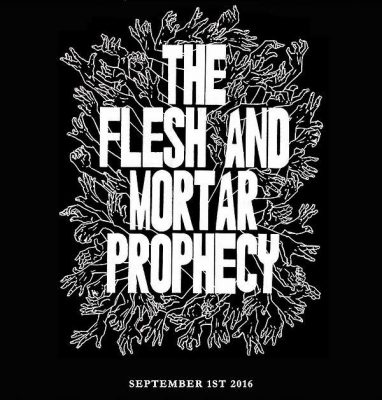Review
By
Dustin Pickering
This small chapbook, although containing only thirty-six pages, manages to speak volumes on the experience of mental illness and institutionalization. The author notes in his preface that part of the inspiration was an interest in psychology and neuroscience, especially the use of lobotomy in Britain during the middle of the last century.
The illustrations by Rachael Tester serve to emphasize the key images in the collection.
It is true that poetry and madness are nearly synonymous. In fact, I have often told others that madness is one of the rites of initiation into poetic expression. It is due to the burden of being both divine and human—the same burden overtakes us all—that poets suffer extreme malady, misunderstanding, and alienation. Poetry has somethingvital to express and this collection is no different. The author explores the human mind and finds the apocalypse it contains, both literally and figuratively. The human mind is complex, and is only a portion of its own full genetic expression. Poetry is akin to that genetic expression in its potentiality. Poetry can only convey to the reader what the reader is intent to learn. It suffers and stagnates in its ephemerality. Without question, poetry is madness because it unleashes the conflicts in the human soul, and pushes the depths of dark dolor out onto the page.
The author Nathan Hassall, I believe, has done a stunning job in expressing the fears and realities of mental illness. Perhaps all humans share this common fear, the fear of awakening and seeing the darkness encroach boldly, and that is why the mentally ill are set aside and maltreated. They have grasped the darkness, torn it asunder, and don’t have the adequate means to share the experience other than to completely lose their senses. The Bible urges us to love God with “fear and trembling” and it seems that isn’t a choice we make.
Reality is a burden we choose to forget or set away from our conscious minds. What the average mind refuses to see or hear, the mentally disparaged man or woman confronts on a daily basis.
Hassall has created an apocalyptic vision that serves as metaphor for life’s ambiguous fears. This collection is not only an exploration, but it is a pillar of salt. Like Lot’s wife, the pieces are a looking back—at least at the moment of reading. They were a treasure of the present, but now are creative reflections of mortality.
The author seeks to show the reader that madness is both a fetter and a freedom. It is the most horrendous of fetters because it is the ultimate freedom. This is why we as living beings fear such freedom.
The collection opens with a famous quote from Rousseau, “Man is born free, and he is everywhere in chains.” When did freedom become a burden? Is this secret explored in ‘The Flesh and Mortar Prophecy‘?
“inside a familiar man,
shivering with vines
twisted around his exhausted body…”
—”The Flesh and Mortar Prophecy”
What is sensed here is a familiarity turned hideous. The old adage, “Familiarity breeds contempt,” comes to mind as we are faced with the fear of sudden change. A person’s character is radically altered by mental illness, and is further altered by medication and treatment. The factors that make a seriously ill person lash out are misery, confusion, pain and sorrow, and helplessness. The nature of the drastic change in composure and the illness setting ground on the mind of the ill person is revealed throughout this chapbook.
The author does a fine job of bringing to light many complex visions and fears residing in the human soul. We do not understand these fears, but one measure of their existence is uncertainty. We live merely in faith of the next moment and take it for granted. However, when questions creep up we are paralyzed with a horrific sense of mystery and all sense is abandoned.
‘The Flesh and Mortar Prophecy‘ can’t answer your most engaging questions about madness and creativity. Psychologists and scientists have explored the mystery of the creative mind for centuries. It is the oracle we gained when sacred texts took a backseat position. Our increasingly complex, material and empirically based science strives to heal human society and further industrial and social progress. However, the root of creativity and its relationship to intense and irrational emotional dispositions is something creative minds themselves answer. Edgar Allen Poe wrote a piece of marginalia about the law of compensation—how Nature grants immense gifts and productivity to a lucky few, but simultaneously detracts from their control over their minds. We see this in brilliant artists throughout history. Every great gift bears with it responsibility and tragedy.
When you read this collection, let it be an experience. Don’t let it intimidate you. You are crawling into an unstable mind and experiencing its phantoms. Poetry is an experience for the reader, and that is what it is intended to be.
Nathan Hassall
Nathan Hassall is Editor for The Luxembourg Review and is also Author of Nascent Illusion (2009), A Conscious Void (2011), Of Gods and Gallows (2015) and The Flesh and Mortar Prophecy (Scheduled release date, September 2016).




No Comments Yet!
You can be first to comment this post!